Control video game review: Paranormal thriller will be a new obsession
There are some great contenders for game of the year, and Control has absolutely secured itself a spot on that list.
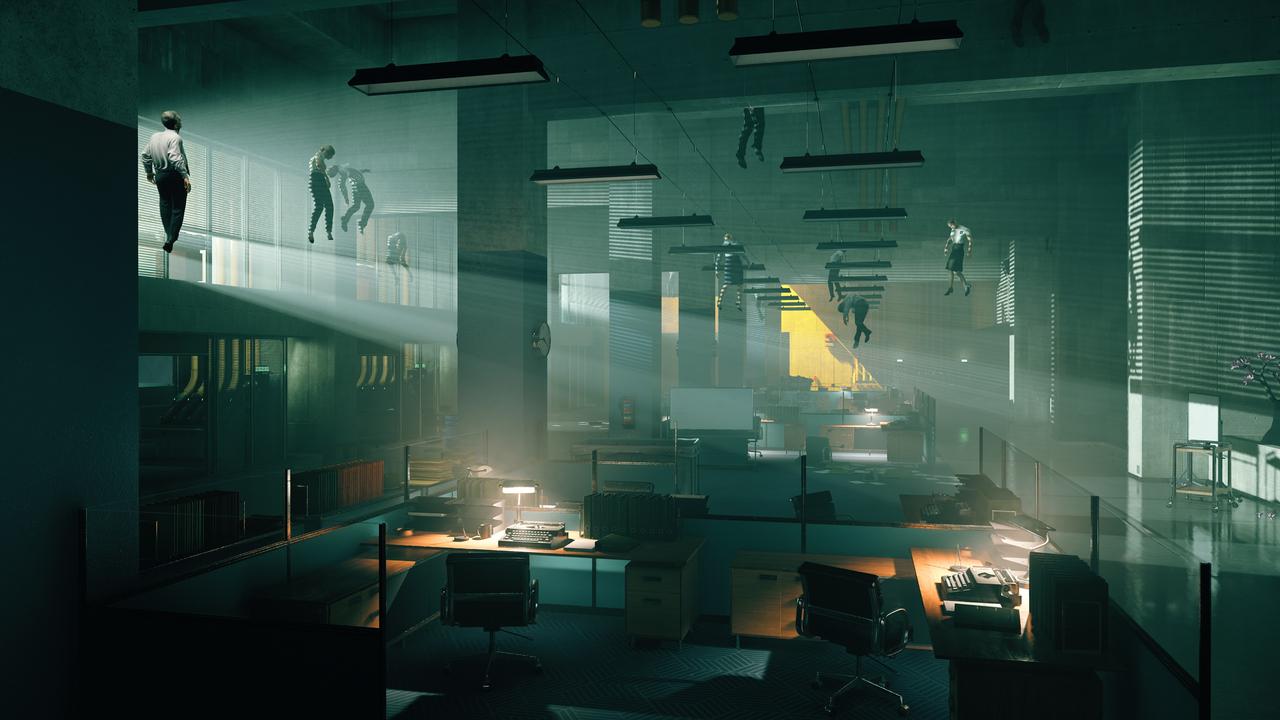
The scene: an innocuous government building in a major city. You can’t find it unless you’re looking specifically for it, and you won’t find it unless it wants you to. It’s a building where the laws of time and space as we know them do not apply, and once you enter, you may not be able to leave.
You’ve entered The Federal Bureau of Control — the setting for superb paranormal thriller Control, developed by Remedy Entertainment and published by 505 Games for PC, PlayStation 4 and Xbox One.
In a nutshell, the game’s backdrop is a cross between The X-Files, The Twilight Zone, Half-Life, Prey and a Stephen King novel. You play Jesse Fader, a woman with paranatural abilities, a mysterious past and a lot of questions for the Bureau of Control about the disappearance of her brother and everyone else in the town she grew up in.
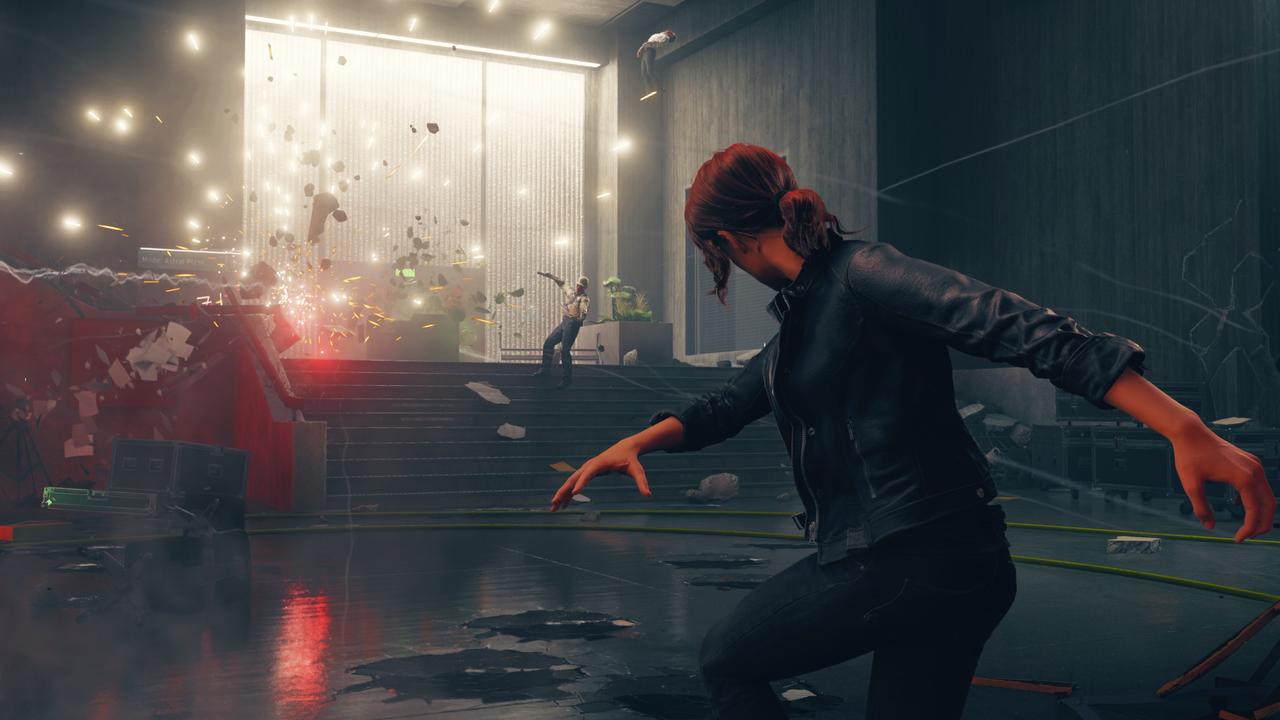
Jesse arrives in the bureau’s HQ and finds the staff missing, the building in lockdown and the director dead of an apparently self-inflicted gunshot wound.
And then things get weird, with Jesse suddenly finding herself named director by a mysterious board and discovering a supernatural entity known as “The Hiss” has taken over the building, possessed most of the personnel and is generally being very bad.
Control looks fantastic, especially if you’ve got a PC with a ray-tracing enabled graphics card. The lighting effects, the reflections, the destructible environments are all superbly done and a pleasure to explore.
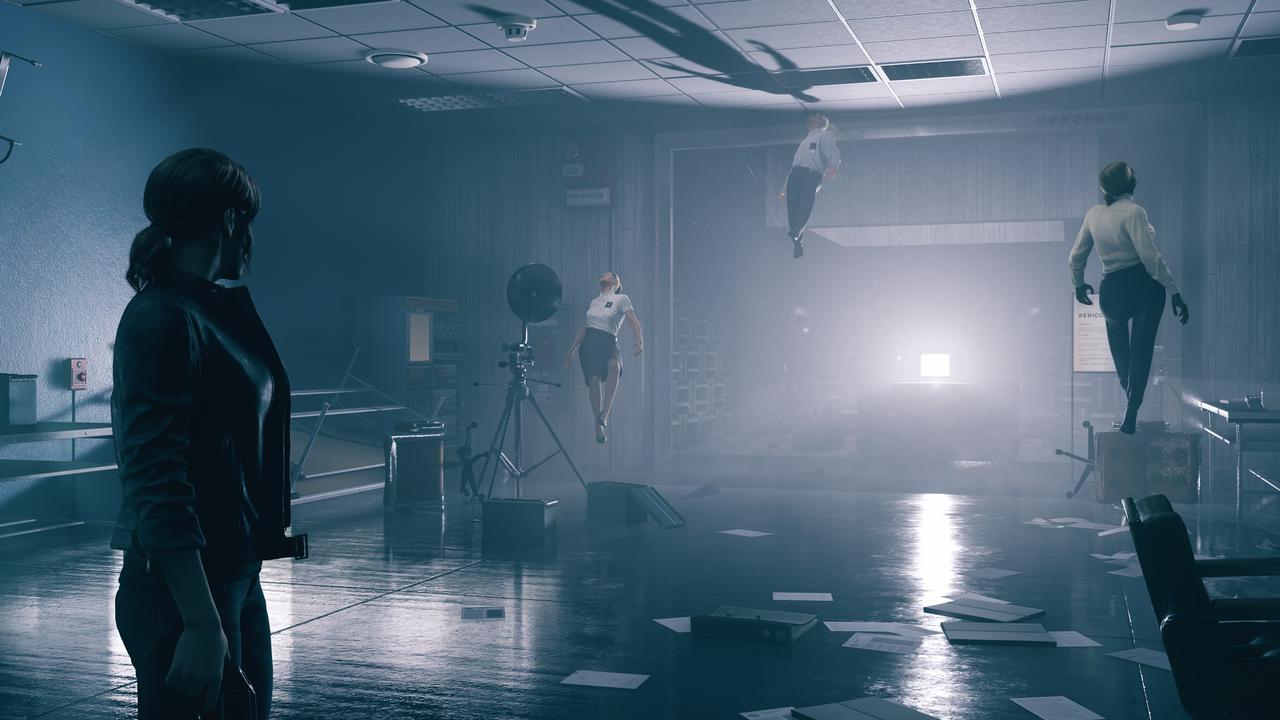
The aesthetic of the game — a sort of timeless mixture of 1950s-1980s — worked really well, and the central mystery was really engaging too.
The game blends cinematic and gaming storytelling methods, giving us Jesse’s inner monologue and really helping the game stand out as something far, far more than just a third-person action-adventure game.
Adding to the experience are excellent performances from some of the actors, notably Courtney Hope (who portrays Jesse Faden), and a particular nod to Matthew Poretta (previously the main actor in the game Alan Wake) as Dr Casper Darling. He does a magnificent job of portraying an earnest but awkward genius in various video presentations throughout the game.
The motion-capture on the actors in the game was generally very good, allowing them to convey a wide range of facial expressions and emotions, but it did tend towards the uncanny valley at times, occasionally making the characters look like androids.
There are a number of nods to the iconic game Half-Life, and there’s also a pinch of Dr Strange and Inception in there as well to add to the experience.
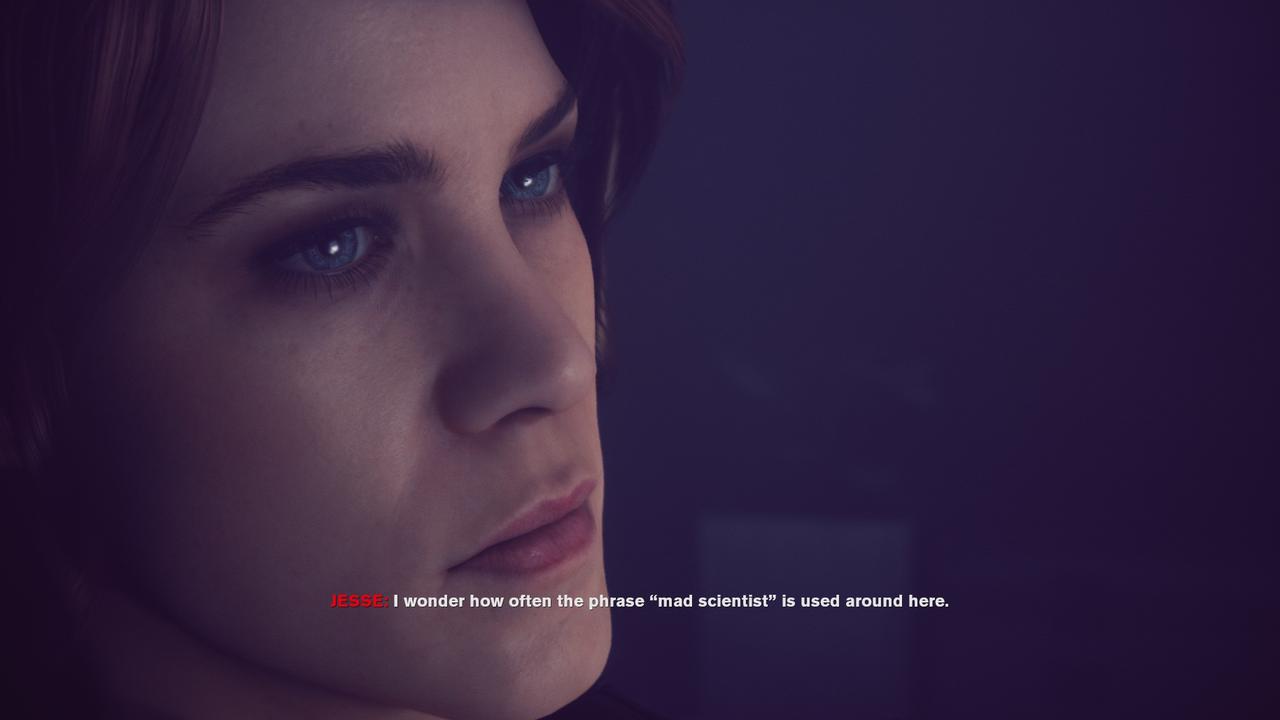
While the actual combat was relatively standard stuff — helped by the addition of telekinetic abilities to throw random stuff around the level at enemies, along with levitating and other such fun activities — it was still satisfying and enjoyable; hurling photocopiers at possessed soldiers or sending an LPG canister into a group of enemies before shooting it never got old or tiresome, especially later on in the game when your powers got more advanced and you could start throwing grenades back at enemies and even picking up your foes and flinging them across the room.
Your powers come from seemingly everyday objects that have become connected to the astral plane — a Cold War-era floppy disk with Soviet nuclear launch codes on it grants telekinetic powers, a possessed merry-go-round horse allows you to dash short distances, and an X-ray Lightbox allows you to possess enemies, for example.
In addition to your powers, you also have a unique gun known as the Service Weapon, which can be modified into various forms, including a semi-auto handgun, a shotgun, a long-range rifle and something approximating a rocket launcher. Ammunition for the Service Weapon is infinite, but when the magazine is empty it takes a few seconds to recharge.
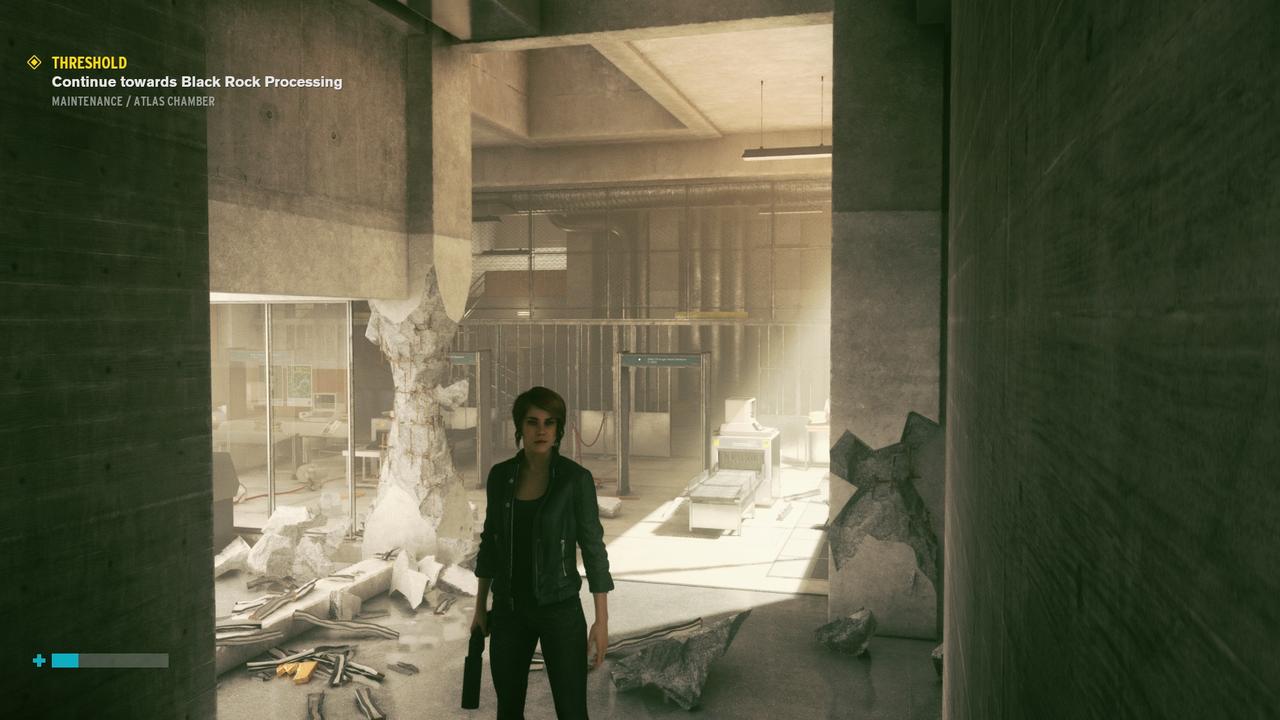
Right from the opening, Control dragged me into its world and presented me with a mystery I wanted to solve, a story I wanted to experience, characters I found interesting, and an environment I wanted to explore and discover (when I wasn’t wrecking it with gunfire and telekinetic powers, that is.)
What’s really impressive is despite all the familiar elements from fiction and gaming alike, Control still feels very much like its own experience — it’s not derivative and I was frequently impressed by how the game took its various influences and melded them together to create something so engaging.
Between the fantastic level design and amazing effects, the entire experience is something almost mind-bending. The puzzles in the game were well done too; just the right level of difficulty to be challenging without frustrating.
While the game is supposed to be free-form (in that you can explore and wander all over the place), you’ll find trying to get into certain areas when you haven’t got the right abilities precludes that — for example, there’s a maze that you can theoretically enter to follow a story, but unless you’ve gotten far enough in the main questline, you won’t have an important piece of equipment and therefore won’t be able to get through it (when you do, though, it’s an extremely cool sequence).
I also found a couple of areas where combat was quite tough and the nearest respawn point was a fair hike away — and sometimes I had to refight several waves of enemies to get back to where I needed to be as well.
The Bureau is enormous — it occupies the building equivalent of the Tardis — so there’s plenty to explore and experience, even after the main storyline has concluded, too.
There’s been some great and unexpected game of the year contenders already this year, and Control has absolutely secured itself a spot on that list — I really enjoyed my time with it and highly recommend it.
Whether you want a mystery game, an action-adventure title or a great story — you owe it to yourself to make room on your hard drive for Control and step into the strange reality it offers.
Continue the conversation on Twitter @RoyceWilsonAU



